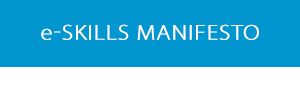ΝΕΑ

19/10/2015
Integrating coding into the school curriculum
ICT skills are essential for 21st century job seekers. Business across industries recognizes the urgency of having more digitally skilled workers. Many teachers, policy-makers and think-tanks are also acknowledging the need for systematic efforts in bringing coding into the curriculum.
European Schoolnet recently published an updated overview of the formal integration of coding in school curricula across Europe, illustrated with examples of curricula integration by country. The findings are based on a survey with 21 Ministries of Education (from 20 European countries and Israel), which gave an overview of their current initiatives and plans.
The report shows that 15 EU countries and Israel have already integrated coding into the curriculum. The EU countries are: Austria, Bulgaria, the Czech Republic, Denmark, Estonia, France, Hungary, Ireland, Lithuania, Malta, Spain, Poland, Portugal, Slovakia, the UK (England). In addition, Finland announced that it will make coding part of school teaching in 2016, while Belgium (Flanders) is currently debating whether to integrate coding at school. More specifically, the map of coding integration across European countries looks like this:
At primary school level the countries which have already integrated coding in the curriculum are: Estonia, France, Spain, Slovakia, UK (England); while Belgium (Flanders), Finland, Poland, Portugal will integrate it in the future. At secondary level 12 European countries have adopted coding and/or computational thinking into the curriculum. The countries are: Austria, Bulgaria, Denmark, Estonia, France, Hungary, Lithuania, Malta, Poland, Slovakia, Spain and the United Kingdom (England).
Download the full infographic (pdf).
Coding skills have wider applicability – they help students understand better today’s digitized world and develop crucial skills like problem solving, creativity and logical thinking. Coding and computational thinking are global vernaculars for understanding technologies and human interactions with computers. But behind coding’s most obvious value – giving instructions to computers and making them do what we want them to do, the added value of coding is in being an enabler for scaling human skills and capabilities in the technology-led world.
Additionally, you can take a look the EurActiv special report on coding.











